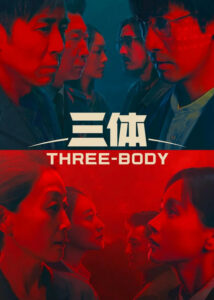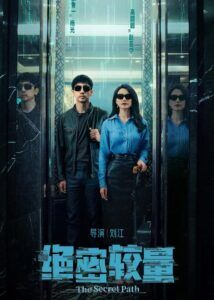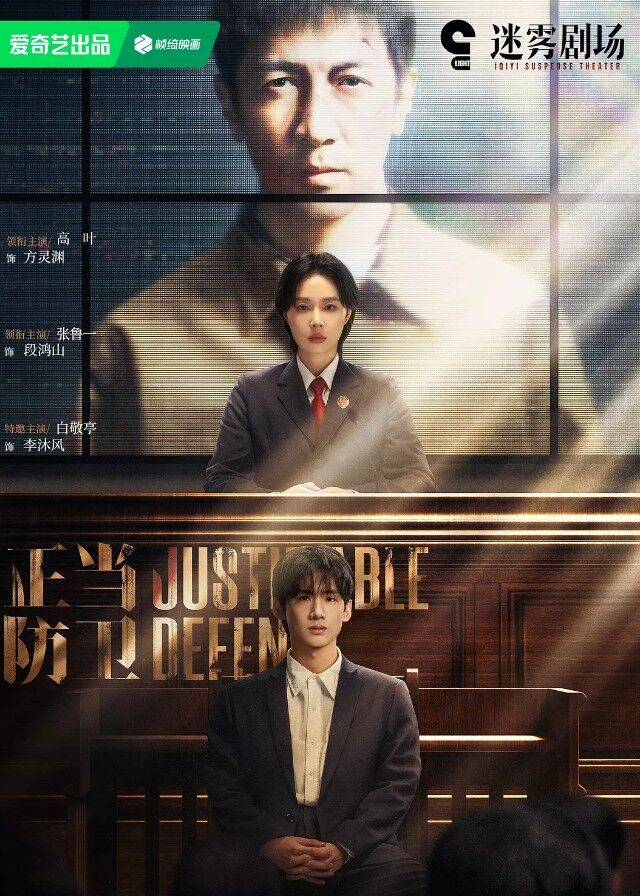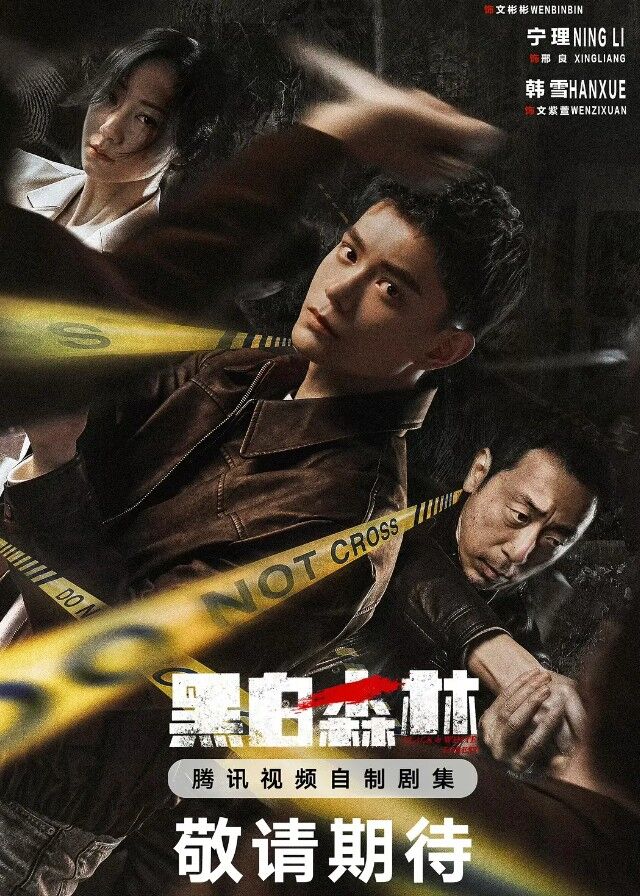Justifiable Defence Episode 13 Recap
> Justifiable Defence Recap
Duan Yingying, during an interview for school admission, reflected on the profession of a prosecutor. She shared her initial misconception that prosecutors were the "bad guys" often portrayed on television. However, after her father became entangled in a complex case, she came to understand that while the public often focused solely on the outcome, only her father and his colleagues truly cared about the underlying reasons and what he had endured.
She expressed her belief that loosening the criteria for justifiable defense was a necessary adaptation to modern times, as public legal awareness had grown significantly. She concluded with conviction that her father would be cleared. Meanwhile, Deputy Chief Prosecutor Fang Lingyuan, while on a phone call sorting out an issue with her mother's new phone, instructed her subordinate, Xiao Zhou, to quickly note down a phone number for an urgent task. Soon after, the hearing for Case 4.
28 commenced, presided over by Deputy Chief Prosecutor Xu Jinghuai. He explained that the purpose of the hearing was to gather opinions from various parties—including community, fishery, public security, legal representatives, and experts—to ensure a fair and legal resolution of the criminal case. Fang Lingyuan was introduced as the prosecutor in charge of the case. The hearing began with questions regarding Duan Hongshan's claim that Zhou Delong livestreamed his kidnapping and abuse.
Duan Hongshan confirmed he remembered Zhou Delong's phone model and identified the device. However, a technical examination revealed the phone was new and contained no livestreaming content, which seemed to undermine Duan Hongshan's key testimony. Fang Lingyuan then demonstrated a crucial piece of evidence concerning the phone: its discovery location. Using a reconstructed model of the fishery, she showed that while the struggle and Zhou Delong's death occurred in one area, the phone was found eight meters away.
Duan Hongshan claimed he didn't notice it fall during the struggle due to the narrow walkway and Zhou Delong's violent movements. Fang Lingyuan, however, argued this distance was abnormal. She presented fishery data showing the crime scene was a breeding area enclosed by fishing nets and demonstrated that a phone could not pass through the small mesh. An investigation, confirmed by the fishery owner, revealed new nets had been installed just a week before the incident, ruling out any holes.
Fang Lingyuan posited that someone must have thrown the phone with significant force over the 3. 5-meter-high net, likely to destroy evidence. She concluded that it could not have been Duan Hongshan, as the phone would have been the most direct and effective evidence to prove his claim of justifiable defense. A hearing officer questioned if Zhou Delong himself might have thrown it, but Duan Hongshan stated he didn't see Zhou Delong make such a move.
Another officer suggested Zhou Delong might have only pretended to livestream to mislead Duan, or that Duan fabricated the story entirely. Duan Hongshan retorted that inventing such a detail would be counterproductive. A hearing officer expressed skepticism, noting Duan Hongshan's extensive experience as a prosecutor should make him adept at proving his own innocence, implying he might be manipulating them. In a separate scene, Mei Zheng and Li Mufeng discussed a painting of a leopard.
Li Mufeng saw a trapped creature, while Mei Zheng perceived a leopard that was trying to break free and had already succeeded, a metaphorical discussion highlighting their different perspectives on confinement and liberation. Returning to the hearing, Fang Lingyuan brought up another significant discovery. Fourteen years prior, a procedural flaw during the separation of Zhou Delong and his wife meant that legal counsel was not properly provided to both parents.
This oversight led Zhou Delong to misdirect his hatred towards Mei Zheng. Years later, after Li Mufeng's case, Duan Hongshan, who had been searching for Zhou Delong, discovered hateful notices about Mei Zheng posted near a university. Believing Zhou Delong was responsible and might return, Duan contacted Mei Zheng to offer help and to try and locate Zhou Delong. Mei Zheng confirmed that Zhou's father had visited her before and that she, too, had been trying to find him.
However, she told Duan that Zhou Delong would not return, as she was leaving school due to the constant harassment. A hearing officer acknowledged that while it was clear Zhou Delong had kidnapped Duan Hongshan, only Duan's testimony existed regarding what transpired afterward, leaving no direct evidence to disprove intentional homicide. Fang Lingyuan presented compelling evidence of Zhou Delong's premeditation: he had been living in the same residential complex, unit, and floor as Duan Hongshan, separated by just one wall.
Surveillance devices, weapons, and extensive materials related to Duan Hongshan, including photos, were found in Zhou Delong's home. The landlord confirmed Zhou Delong began renting the previous year, solidifying the claim of a long-planned attack.
When a hearing officer asked Duan Hongshan if he had ever seen Zhou Delong, Duan admitted he might have, recalling seeing a person resembling Zhou Delong standing in the rain outside his building on the night of April 27th, though he wasn't certain at the time. This led some hearing officers to conclude that it was plausible for Duan Hongshan to have developed murderous intent towards Zhou Delong, whether for self-preservation or to protect his family and career.
They suggested this was a case of intentional homicide where Duan used his legal knowledge to escape punishment. Duan Hongshan countered that surveillance footage didn't show Zhou Delong because he was ambushed. He explained that as the prosecutor in charge of the Jiang Ting case, he received an urgent call from Mei Zheng requesting a meeting.
Duan deduced that Zhou Delong, who had been monitoring Mei Zheng, likely knew about their meeting and set an ambush, thus explaining his absence from surveillance. Further investigation revealed that in the entire Xingfuli Complex, only a handful of residents had ever seen Zhou Delong, suggesting he deliberately avoided detection. A prosecutor highlighted Duan Hongshan's meticulous and objective approach to past controversial cases, such as Li Mufeng's appeal, asserting that he prioritized fairness and justice for every individual.
However, a hearing officer maintained that an experienced prosecutor like Duan should have managed a legitimate self-defense scenario more effectively, particularly by proving the life-threatening danger or his attempts to escape. Fang Lingyuan challenged this, questioning whether a prosecutor should be expected to remain completely emotionless and rational in all life-or-death situations. The hearing then focused on Duan Hongshan's actions immediately following the stabbing.
He confirmed that after stabbing Zhou Delong, he drove Zhou Delong's car directly to the nearest police station to report the incident and preserve evidence. A prosecutor presented calculations: the distance from where Duan was abducted to the fishery was 25 kilometers, and from the fishery to the police station was 7 kilometers, totaling 32 kilometers. However, the car's odometer showed 35 kilometers when Duan reported the incident, an unexplained excess of three kilometers.
Duan Hongshan attributed this to poor visibility and bad road conditions due to rain. The hearing officer countered that the day's precipitation was not heavy rain and should not have significantly impaired visibility. Duan Hongshan argued that having just escaped a life-threatening situation and being unfamiliar with the area, taking a wrong turn was understandable. When pressed about being nervous yet still noticing the mileage, Duan explained it was his professional habit to observe details at a scene.
The hearing officer expressed doubt about the sincerity of his fluctuating claims of nervousness and composure. The discussion shifted to Duan Hongshan's opportunity to escape. A hearing officer questioned why Duan, after freeing himself, didn't flee. Duan explained that he tried, but the fishery was surrounded by iron nets, leaving no way out. He clarified that after disarming Zhou Delong, he first tried to use the knife to force him back, not to stab him.
However, Zhou Delong continued his frenzied attack. With a head injury, bleeding, and his leg caught in a fishing net, Duan Hongshan stated his life was in imminent danger, making it impossible to think calmly. A hearing officer suggested Duan might have killed Zhou Delong because Zhou's actions, such as filing official complaints against him, threatened his career and family. Duan firmly reiterated that he acted in self-defense as Zhou Delong was attacking his head with an iron hook.
Another hearing officer expressed deep skepticism, pointing out Duan's inconsistent descriptions of his emotional state—claiming to be nervous when it was convenient, yet clear and rational when it benefited his account. This heightened suspicion that Duan had killed Zhou Delong and then fabricated a story of justifiable defense. A law professor on the panel stated that while the officer's theory lacked evidence, so did Duan's narrative.
Without concrete proof, his actions could not be definitively ruled as justifiable defense, and the investigative authorities vowed to continue their inquiry. Outside the hearing, Mei Zheng and Li Mufeng discussed the case. Li Mufeng believed that, regardless of the outcome, the case had drawn public attention to the concept of justifiable defense. Mei Zheng pondered if Duan Hongshan was now trapped by the very law he sought to uphold, noting the ambiguity of legal provisions.
She wished laws could be as clear as traffic lights. Later, a hearing officer questioned how, if it wasn't intentional murder, a single stab could have been so precisely fatal. Duan Hongshan cited a five-year-old precedent, the case of Guo and Diao, where a man who was habitually abused killed his tormentor with a single stab during an assault.
Duan argued that expecting someone in extreme panic and fear for their life to accurately judge the threat level or the appropriate measure of self-defense was unrealistic. The hearing officer dismissed this as sophistry. Duan Hongshan concluded by referencing Procuratorial Case No. 47, an official analysis of another justifiable defense case, questioning why his own situation, which had clear parallels to established precedents, was being treated differently.










